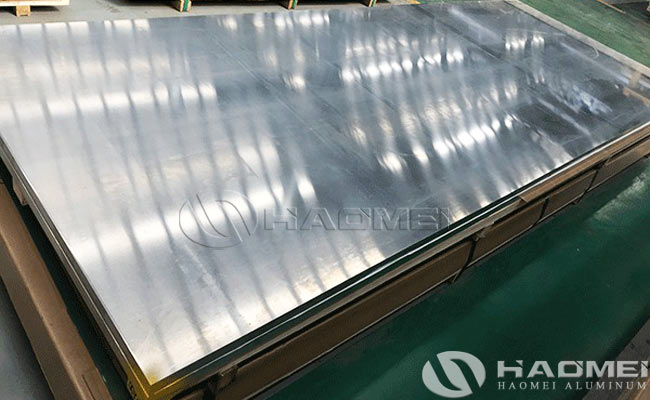5083 h111 aluminum plate is an aluminum alloy material with magnesium as the primary alloying element. It features medium strength, excellent corrosion resistance, weldability, and ductility. It is suitable for dynamic loading environments and is widely used in shipbuilding, automotive welded parts, pressure vessels, refrigeration equipment, rail transportation equipment, and missile parts.
Chemical Composition
The main chemical composition of 5083 H111 aluminum plate includes:
Aluminum (Al): Balance
Magnesium (Mg): 4.0%-4.9%
Manganese (Mn): 0.40%-1.0%
Silicon (Si): ≤0.40%
Copper (Cu): ≤0.10%
Zinc (Zn): ≤0.25%
Titanium (Ti): ≤0.15%
Chromium (Cr): 0.05%-0.25%
Iron (Fe): ≤0.40% (Individual impurities ≤0.05%, total impurities ≤0.15%)
The combination of these elements gives 5083 aluminum plate excellent overall properties. The addition of magnesium, in particular, significantly improves its corrosion resistance and weldability.
Mechanical Properties
5083 H111 aluminum plate has the following mechanical properties:
Tensile Strength: ≥270 MPa (higher in some high-strength conditions)
Yield Strength: ≥110 MPa
Elongation: δ10 (%) ≥20, δ5 (%) ≥12
Hardness: 500 kg force/10 mm ball (approximately 65 HB)
The H111 temper indicates that the specified strength is achieved through work hardening without heat treatment. Therefore, it retains excellent plasticity and ductility, making it suitable for applications requiring dynamic loads.
Advantages of 5083 h111 aluminum plate:
Corrosion Resistance:
The surface forms a dense oxide film, effectively resisting corrosion in environments such as seawater and industrial atmospheres, making it particularly suitable for marine engineering.
Weldability:
It supports a variety of welding methods, including arc welding and gas welding. However, parameters must be controlled during welding to avoid cracking.
Processability:
It can be easily processed by cold working processes such as stamping and drawing, allowing it to be formed into complex parts.
Lightweight:
With a density of approximately 2.7 g/cm³, it is approximately 20% lighter than steel, helping to improve equipment energy efficiency.
High Specific Strength:
With an excellent strength-to-weight ratio, it is suitable for highly stressed structural parts.
Applications of 5083 h111 aluminum plate:
Due to its excellent performance, 5083 H111 aluminum sheet is widely used in the following applications:
Shipbuilding:
Ship plates, hull structures, decks, etc., resist seawater corrosion and extend service life.
Automotive:
Vehicle hulls, chassis, doors, etc., achieve lightweighting and improve fuel efficiency.
Pressure vessels:
Liquid tankers, refrigerated containers, etc., meet strict fire protection requirements.
Rail Transit:
High-speed rail bodies, subway and light rail structural components, reduce weight and increase operating speed.
Aerospace:
Aircraft fuel tanks, fuel pipes, etc., balance strength and corrosion resistance.
Other Applications:
Refrigeration equipment, drilling equipment, missile components, armor, etc.
Processing and Forms of 5083 h111 aluminum plate:
Thickness Range:
0.15-600 mm, available in a variety of forms including cold-rolled sheet, round bar, and aluminum tube. Always in stock: Thicknesses from 1 to 10 mm, meeting fast delivery needs.
Condition Identification:
H111 indicates work-hardened but unheated. Other conditions, such as H112 and H32, are suitable for different process requirements.
Surface Quality:
Requires no oil stains, scratches, or clean edges. Homogenization heat treatment and rolling process optimization are employed during production.
5083 H111 aluminum plate is certified by China Classification Society (CCS) and Det Norske Veritas (DNV), and complies with the International Maritime Organization (IMO) and relevant industry standards, ensuring reliability in harsh environments.

